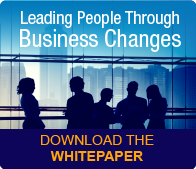Like so many of you who read our blog on a weekly basis, IMA is facing a major change. As you may already know our Vice President of Client Solutions, Paula Alsher, retired at the end of 2018. A bittersweet time for us as we are thrilled to hear Paula is already enjoying a peaceful and relaxing retirement, but a challenging transition for our small company as she did so much for us on a day-to-day basis. 
One of those tasks was writing our weekly article. But alas…now that Paula is traveling the world and enjoying time with her family, I have decided to take on the challenge myself! While you may see a few less articles per month, the content will start coming directly from me. I see this as an excellent opportunity to get back to basics as well as start new conversations on current and important topics. I have some thought-provoking (even controversial at times) subjects planned to share, so be on the lookout in your inboxes and on our website for the new material.
In the meantime, as we begin 2019, I want to start by addressing the biggest challenge I think we are all still facing…accelerating change. In other words, getting our organizations to do a much better job of sequencing changes, using our constrained resources more efficiently and helping ensure system optimization is achieved. Sounds simple, no?
Below are the 8 trends I continue to see as imperative in moving away from traditional change management and into the Next Generation. A transition that inevitably leads to delivering maximum impact in the shortest amount of time.
- Recognizing the Difference Between Implementation vs. Installation - When a project’s endpoint is declared at go-live, it may look like change, but it is only change at the surface level. In Next Generation Change Management, a project isn’t deemed complete unless it is delivered on time, on budget, with all business, technical and human objectives met. (See our newly revised Mini Guide to Installation vs Implementation for more information on this critical topic.)
- Change Agents’ Actions are Focused on Impact vs. Activity - Traditional change management methodologies often focus on a lock-step protocol where Change Agents go through a set of forms and/or checklists “to do” change management. In Next Generation change management, Change Agents use the AIM Methodology to guide them on what needs to be done based on the realities of the moment in order to drive speed.
- Change Management Becomes Relationship Centric vs. Position Centric - Next Generation Change Management is an exercise in power and politics, where Change Agents’ influence is used to achieve the needed business results.
- Organizations Use Contracting vs. Chartering - Chartering addresses the technical elements of a change, but it does not identify the behavioral objectives needed to achieve all the success metrics. NextGen Change Agents who are skilled at Sponsor Contracting are better able to work with Sponsors to Express, Model, and Reinforce a change, which are the three actions needed by every Sponsor to drive speed.
- Change Management is Integrated with Project Management vs. Separate From It - Project management helps ensure a project is on time, on budget and to scope. Change management is the process, rigor and discipline for the people side of a change. In Next Generation Change Management, the principles, tools and deliverables of change management are blended with project management from the beginning of a project.
- Change Agents are Outcome Focused vs. Happy Faced Focused - The job of a change management practitioner needs to be about getting business results, not convincing the Targets to like the change, (i.e. a “happy face exercise.”) In Next Generation Change Management, actions are centered around delivering value through focusing only on those actions that drive the outcome of behavior change.
- The Focus is on Readiness vs. Resistance - In any change, you have two options: You can either invest in Readiness now, or spend your resources managing resistance later.
- Change Agents Motivate Targets to Change vs. Trying to Convince Them to Change - In the past, it was good enough to just tell people what they needed to do, and they would do it. But those days are gone. If you want to motivate people to change what they are doing, you must alter the Reinforcement. It’s just that simple.
2019 is sure to be another year filled with many changes. So, let’s work together to ensure value realization is reached, even when you have limited resources to work with. Happy New Year…and happy changing…


